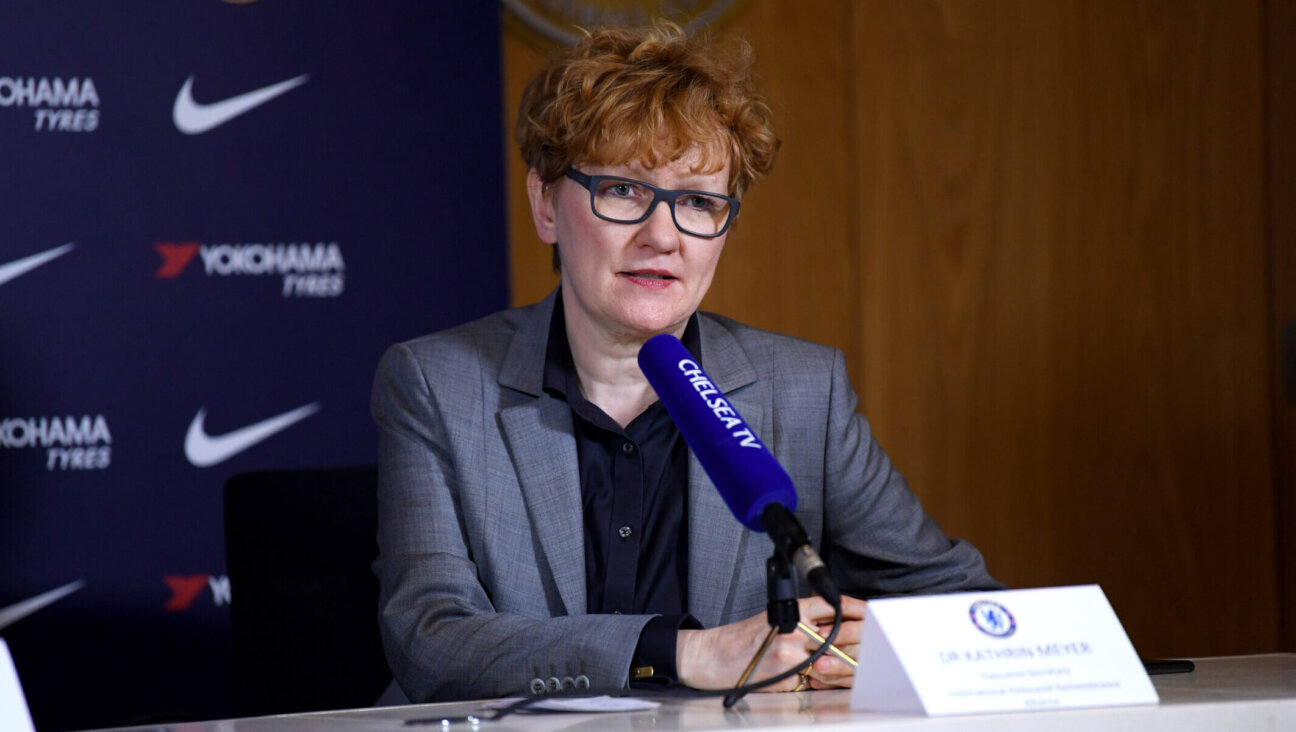Auditors Who Crunched Numbers at FEGS Dropped by 8 Top Not-For-Profits

Some of America’s leading Jewish not-for-profit groups are dropping a accounting firm following financial scandals at a string of the firm’s clients.
New York-based Loeb & Troper has lost at least eight Jewish not-for-profit clients in recent years, including, in the past few months, the Jewish Federations of North America, which is the umbrella organization for all regional Jewish federations, and the Jewish National Fund.
The firm has audited dozens of Jewish groups for decades, and its former employees work as chief financial officers at no fewer than four major New York Jewish charities. It is tightly enmeshed in the insular networks of Jewish not-for-profit board leaders and executives.
Since 2011, however, a number of its clients have been implicated in financial scandals:
• In 2011, Loeb & Troper client YAI, which aids the developmentally disabled, paid $18 million to New York State and the federal government to settle claims that the charity had filed false fiscal reports.
• In 2014, Loeb & Troper client FEGS announced that it had discovered a previously undetected $19 million deficit on its books. FEGS declared bankruptcy the next year.
• In early 2015, the president of New York Legal Assistance Group, another Loeb & Troper client, resigned abruptly amid a reported federal investigation into alleged “accounting irregularities.”
• This year, Loeb & Troper client CenterLight Healthcare agreed to pay $47 million to state and federal authorities in order to settle charges of Medicaid fraud.
Loeb & Troper and its partners have not been accused of wrongdoing in any of these cases. But the scandals have destroyed one major charity and hobbled others. Services have been disrupted for tens of thousands of needy clients, and hundreds of employees have been left jobless.
As the list of scandals has grown, many Jewish charities have sought new auditors.
Selfhelp Community Services, a large New York-area Jewish social services charity that had close ties to FEGS, recently dropped Loeb & Troper. United Israel Appeal, which distributes Jewish federation resources to Israel, switched to a new auditor a few months ago. HIAS, the Jewish immigrant aid group, switched auditors in 2014. Lighthouse Guild, a charity for the blind formed out of a merger that included Jewish Guild for the Blind, also left Loeb & Troper in 2014. The Jewish Board, the New York-area social service charity formerly known as the Jewish Board of Family and Children’s Services, switched in 2013.
Loeb & Troper declined to comment about the departures.
Some groups have stayed with the firm. Loeb & Troper still audits the Forward Association, which publishes this newspaper. Other groups that confirmed that they are still audited by Loeb & Troper include the United Synagogue of Conservative Judaism; the Jewish eldercare group MJHS; the fundraising group Friends of the Israel Defense Forces, and Gurwin Jewish, a Long Island nursing home.
NYLAG, the Jewish legal aid group whose president resigned abruptly in 2015, would not say whether it continued to work with Loeb & Troper. CenterLight, the health care group that settled its fraud charges in February, did not respond to a request for comment. An official with The Jewish Education Project, which aids Jewish day schools, said that the group continued to work with Loeb & Troper but was now audited by a different partner within the firm.
When accounting firms receive negative attention, their clients can suffer. A 2002 academic paper published in the Journal of Accounting Research found that during the Enron scandal, stock prices fell among corporations audited by the same accounting firm as Enron.
“The perception of audits is a really delicate thing,” said Brian Mittendorf, a professor of accounting at The Ohio State University. “Perceptions and reputation are critical in audits.”
Paul K. Chaney, one of the authors of the Journal of Accounting Research paper, said that not-for-profits could potentially be even more vulnerable than public companies when their auditors come under scrutiny. “The lifeblood of nonprofits is being able to raise money,” said Chaney, a professor of accounting at Vanderbilt University. “I would think that the reputation [of the auditor], in that case, might even [have] more of an impact.”
Many of the groups that dropped Loeb & Troper told the Forward that they switched simply on the principle that rotating audit firms is healthy. “We changed as a matter of good governance,” said Steve Weiss, a board member of the Hebrew Free Loan Society, which left Loeb & Troper in the past year. Yet HFLS had used Loeb & Troper as its auditor since at least 1997, according to the earliest tax returns publicly available for the group on the website GuideStar.
JNF, which has hired the firm Grant Thornton to audit its fiscal year that began in October 2015, also claimed that it switched for governance reasons. “It is common and good fiduciary practice for nonprofits and corporations to rotate from one auditor to another every few years,” a spokesperson said. Yet JNF had used Loeb & Troper since 2002.
Similarly, though JFNA told the Forward that it is an “industry standard to change audit firms periodically,” the group had used Loeb & Troper since 1999. And while Selfhelp said that its decision was “purely good governance,” it had used Loeb & Troper since at least 1997.

Jerry Silverman, president and CEO of Jewish Federations of North America, which recently dropped Loeb & Troper. Image by jfna
The federal Sarbanes-Oxley Act, passed in 2002, requires public corporations to rotate partners within an audit firm every five years to prevent an overly close relationship from developing, one that could strain an auditor’s independence. The law makes no such requirement of not-for-profits, nor does it require any entity to periodically switch audit firms.
An update of New York State’s charity law that passed in 2013 may have alerted some not-for-profit boards of the need for increased oversight over the audit process. The law’s new provisions required that boards themselves, and not just charity executives, be responsible for the annual audit.
Contact Josh Nathan-Kazis at [email protected] or on Twitter, @joshnathankazis
A message from our Publisher & CEO Rachel Fishman Feddersen

I hope you appreciated this article. Before you go, I’d like to ask you to please support the Forward’s award-winning, nonprofit journalism so that we can be prepared for whatever news 2025 brings.
At a time when other newsrooms are closing or cutting back, the Forward has removed its paywall and invested additional resources to report on the ground from Israel and around the U.S. on the impact of the war, rising antisemitism and polarized discourse.
Readers like you make it all possible. Support our work by becoming a Forward Member and connect with our journalism and your community.
— Rachel Fishman Feddersen, Publisher and CEO
























